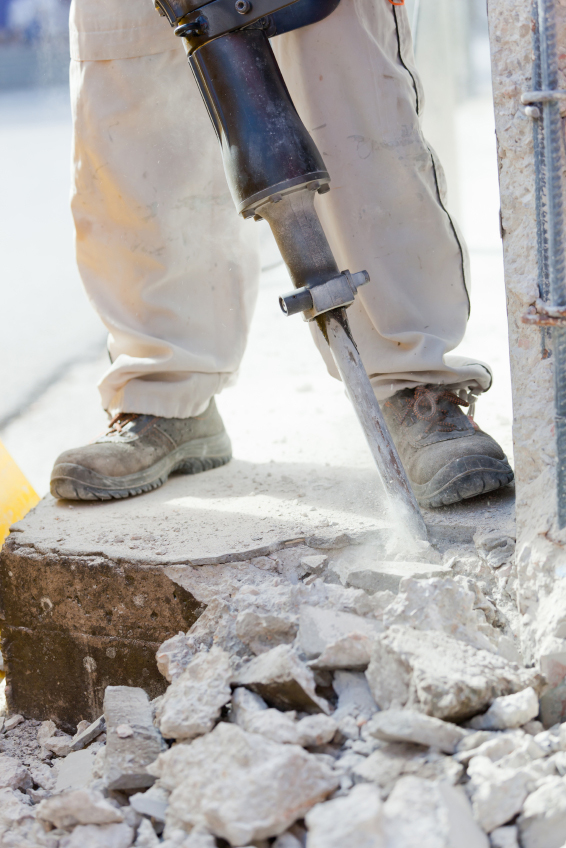Demolition Workers and Mesothelioma
Toxic Dust from Asbestos Causes Mesothelioma in Demolition Workers
You raze old buildings for a living. In the process, you raise clouds of dust.
Now you face a moderate to high risk of developing mesothelioma. This is because those dust clouds contained asbestos.
Your work as a demolitionist often put you right in the thick of those clouds. They resulted from use of:
- Hydraulic excavators
- Bulldozers
- Wrecking balls
- Jackhammers and compressed-air devices
- Sledgehammers, wrecking bars, axes and shovels
Asbestos lurks inside many materials utilized in making the older buildings you knocked down. Building materials employed asbestos to prevent them from conducting high heat or to make them fire safe.
Plentiful and easy to mine, mineral asbestos proved economical to use. As a result, the majority of habitable structures built before the 1970s contained it.
How Asbestos Is a Danger to You

Plus, the open air up top could somewhat dissipate the cloud so that it would not be as thick.
You might have demolished from the confines of an enclosed and air-conditioned operator’s cab aboard a ball-swinging crane. You still were not safe from asbestos.
Sooner or later, you would exit that cab. Perhaps for your lunch break. Certainly at quitting time.
Asbestos dust was all around you on the ground. It would have been easily kicked up by the passing breeze, you walking on it, or almost any activity — yours or someone else’s.
The big problem with asbestos clouds is that tiny particles of the mineral get inside your lungs as you breathe. They do not come back out.
Those trapped fibers after many long years in your lungs somehow turn the healthy cells lining the exterior of your lungs into the cancer known as mesothelioma.
Asbestos Abatement Now Required Before Demolition
Government regulations spelling out how asbestos-containing buildings are to be torn down currently exist. But they might not have been in effect during your years as a demolition worker.
These regulations call for contractors to perform asbestos abatement of structures before the takedown begins. However, it often is not possible to safely remove asbestos-containing materials before demolition.
The Environmental Protection Agency (EPA) and the Occupational Safety and Health Administration (OSHA) say that in such situations demolition can still proceed.
The parts of the structure being wrecked need to be sprayed with water or some other wetting agent and then kept wet until the debris is carted off for disposal.
Union Warns of Asbestos Danger
The IUOE represents approximately 400,000 workers in the U.S. and Canada. Only some of them are employed in construction’s demolition sector.
But every member takes pride in knowing that the IUOE is the 12th largest union in the AFL-CIO and the third largest in the Canadian Federation of Labour.
Even though demolition workers account for only part of the IUOE, asbestos is a concern because it potentially poses a health and safety risk to the entire membership.
In response, the IUOE conducts training programs to help members recognize and properly respond to all on-the-job hazards they might encounter, including asbestos.
As a member of the IUOE, you should take advantage of your union-provided health benefits and visit a physician who specializes in diagnosing mesothelioma. A mesothelioma doctor will be able to tell you whether you have the disease.
A doctor can also provide the information you need to stay alive. Mesothelioma strikes fast and progresses faster. Don’t wait. Act now.
